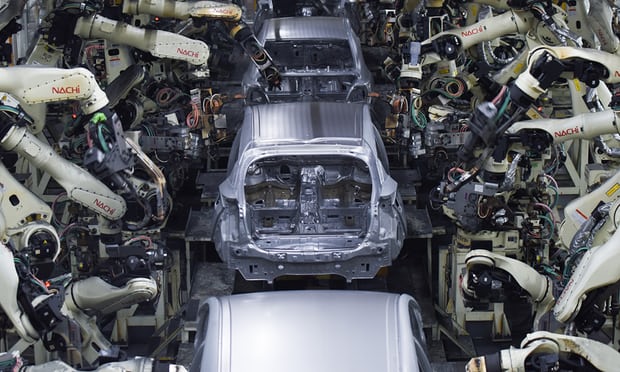
Adam Vaughan Fri 4 May 2018 18.35
Environment secretary favours the move but it is hotly contested within government
Michael Gove is spearheading plans to halt the sale of new hybrid cars by 2040 to help tackle UK air pollution, Whitehall sources have said.
Ministers have been battling privately over whether or not to ban hybrids to strengthen the government’s policy of banning new diesel vehicles in 22 years time.
The environment secretary is in favour, as is the business secretary, Greg Clark, but the transport secretary, Chris Grayling, is opposed, the FT reported on Friday.
Hybrid car sales dwarf those of fully electric and plug-in hybrid vehicles, but the former emit more pollution because they are still overwhelmingly reliant on burning oil.
The proposed hybrid ban is part of a plan called Road to Zero, which is being “heatedly discussed” within government, one source said.
A Department for Transport spokesperson said: “It is categorically untrue that government is planning to ban the sale of hybrid cars in the UK by 2040.”
A hybrid ban would mean the sale of new cars such as the Toyota Prius would be prohibited after 2040, while 100% electric cars and plug-in hybrids, which have larger batteries and a longer range without using petrol or diesel, could still be sold.
The motor industry responded angrily to the news, saying it was disappointed to see policy being communicated by leaks.
Mike Hawes, the chief executive of the Society of Motor Manufacturers and Traders, said: “Unrealistic targets and misleading messaging on bans will only undermine our efforts to realise this future, confusing consumers and wreaking havoc on the new car market and the thousands of jobs it supports.
“We cannot support ambition levels which do not appreciate how industry, the consumer or the market operate and which are based neither on fact nor substance.”
When the 2040 ban was announced last summer, shortly after a similar plan by France, the UK government declined to be drawn on whether it covered hybrids.
About 98% of new car sales are petrol or diesel, including hybrids. The latter accounted for 72,523 new car registrations in 2017, compared with 13,597 for fully electric models and 33,666 for plug-in hybrids.
Prof David Bailey, an automotive expert at Aston university, said the switch to 100% electric cars would only begin to take off in a big way in the 2020s. “We will see a quicker shift into hybrid technology which is set to become the mainstream,” he said.
Visits: 103




get to know what is hybrid cars